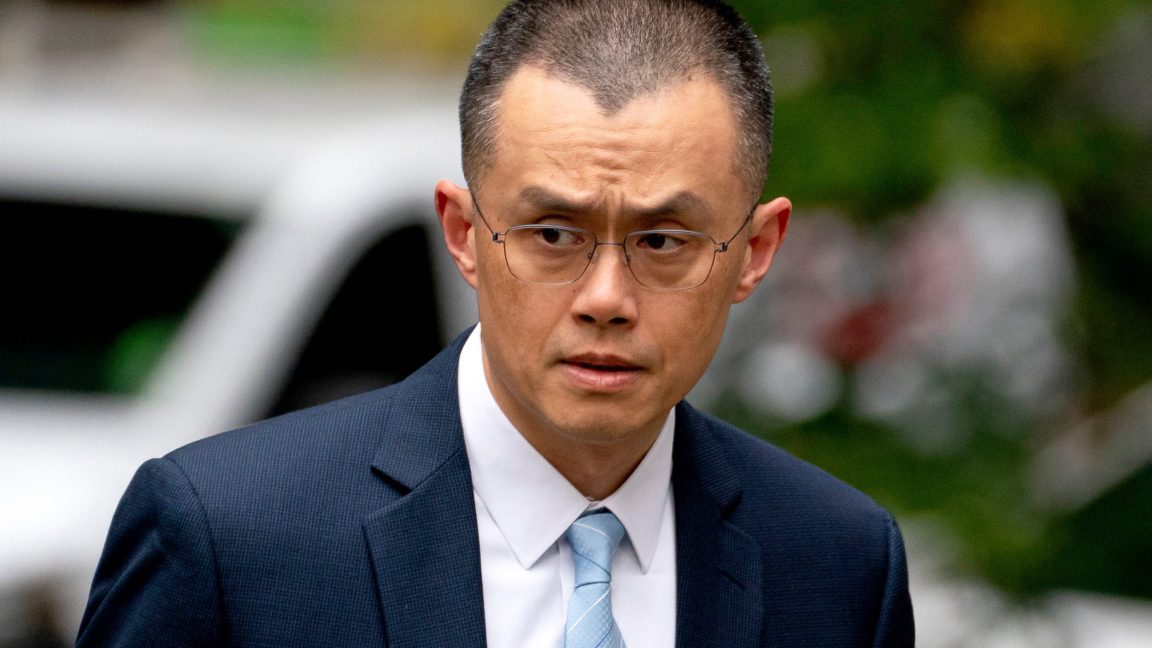The bankruptcy estate of collapsed cryptocurrency exchange FTX has sued the company's former rival Binance in an attempt to recover $1.76 billion or more. The lawsuit seeks "at least $1.76 billion that was fraudulently transferred to Binance and its executives at the FTX creditors' expense, as well as compensatory and punitive damages to be determined at trial."
The complaint filed yesterday in US Bankruptcy Court in Delaware names Binance and co-founder and former CEO Changpeng Zhao among the defendants. FTX founder Sam Bankman-Fried sold 20 percent of his crypto exchange to Binance in November 2019, but Binance exited that investment in 2021, the lawsuit said.
"As Zhao would later remark, he decided to exit his position in FTX because of personal grievances he had against Bankman-Fried," the lawsuit said. "In July 2021, the parties negotiated a deal whereby FTX bought back Binance's and its executives' entire stakes in both FTX Trading and [parent company] WRS. Pursuant to that deal, FTX's Alameda Research division directly funded the share repurchase with a combination of FTT (FTX's exchange token), BNB (Binance's exchange token), and BUSD (Binance's dollar-pegged stablecoin). In the aggregate, those tokens had a fair market value of at least $1.76 billion."
Because FTX and Alameda were balance-sheet insolvent by early 2021, the $1.76 billion transfer "was a constructive fraudulent transfer based on a straightforward application" of bankruptcy law, and an intentional fraudulent transfer "because the transfer was made in furtherance of Bankman-Fried's scheme," the lawsuit said.
Alameda could not fund the transaction because of its insolvency, the lawsuit said. "Indeed, as Bankman-Fried's second-in-command, Caroline Ellison, would later testify, she contemporaneously told Bankman-Fried 'we don't really have the money for this, we'll have to borrow from FTX to do it,'" the lawsuit said.
The complaint alleges that after the 2021 divestment, Zhao "set out to destroy" FTX, and accuses Binance and Zhao of fraud, injurious falsehood, intentional misrepresentation, and unjust enrichment.
Binance is far from the only entity being sued by FTX. The firm filed 23 lawsuits in the bankruptcy court on Friday "as part of a broader effort to claw back money for creditors of the bankrupt company," Bloomberg reported. Defendants in other suits include Anthony Scaramucci and his hedge fund SkyBridge Capital, Crypto.com, and the Mark Zuckerberg-founded FWD.US.
Lawsuit cites SBF’s false statements
Ellison, who was sentenced to two years in prison, testified that Alameda funded the repurchase with about $1 billion of FTX Trading capital received from depositors, the lawsuit said. It continued:Ellison further testified that Bankman-Fried dismissed her concerns about financial resources, telling her that, notwithstanding the need to use customer deposits, the repurchase was "really important, we have to get it done." Indeed, as discussed below, one of the reasons Bankman-Fried viewed the transaction as "really important" was precisely because of his desire to conceal his companies' insolvency and send a false signal of strength to the market. In connection with the share repurchase, Bankman-Fried was asked directly by a reporter whether Alameda funded the entire repurchase using its own assets, expressing surprise that Alameda could have done so given the purchase price and what was publicly known regarding Alameda's financial resources. In response, Bankman-Fried falsely stated: "The purchase was entirely from Alameda. Yeah, it had a good last year :P" (i.e., an emoji for a tongue sticking out).The transaction contributed to FTX's downfall, according to the lawsuit. It "left the platform in an even greater imbalance, which Bankman-Fried attempted to cover up in a pervasive fraud that infected virtually all aspects of FTX's business," FTX's complaint said. Bankman-Fried is serving a 25-year prison sentence. Because FTX trading was insolvent in July 2021 when the Binance share repurchase was completed, "the FTX Trading shares acquired through the share repurchase were actually worthless based on a proper accounting of FTX Trading's assets and liabilities," the lawsuit said.


